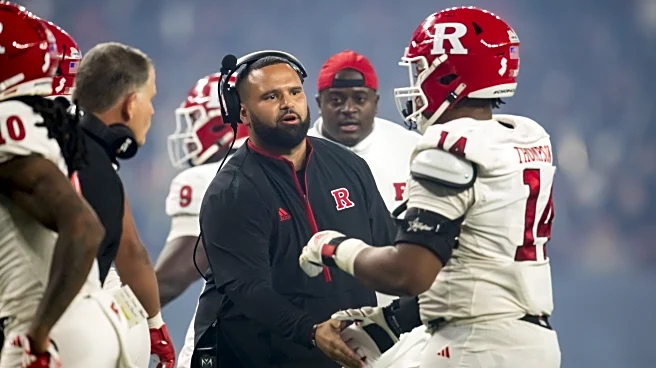What's Happening?
Health Secretary Robert F. Kennedy Jr. has instructed the Centers for Disease Control and Prevention (CDC) to change its longstanding position that vaccines do not cause autism. This decision marks a significant
departure from established scientific consensus and has sparked debate among public health experts. Kennedy argues that the statement 'vaccines don’t cause autism' is not evidence-based, citing gaps in vaccine safety science. Despite large-scale studies showing no link between vaccines and autism, Kennedy believes further research is needed, particularly concerning vaccines given in the first year of life. His actions have drawn criticism from public health leaders who assert that the question of vaccines causing autism has been settled, and they warn that such changes could undermine public trust and vaccination rates.
Why It's Important?
The alteration of CDC guidance by Health Secretary Kennedy has significant implications for public health policy and vaccine confidence in the United States. Critics argue that Kennedy's actions could lead to decreased vaccination rates, potentially increasing the risk of outbreaks of preventable diseases like measles and whooping cough. The move has also reignited debates about vaccine safety, a topic that has been contentious since the late 1990s. Public health experts emphasize the importance of maintaining trust in vaccines, which have historically saved millions of lives. Kennedy's decision may influence public perception and policy discussions, affecting how health information is communicated and potentially impacting public health outcomes.
What's Next?
The controversy surrounding Kennedy's decision is likely to continue, with potential hearings or discussions in Congress. Senator Bill Cassidy, a doctor and chairman of the Senate Health Committee, has expressed strong opposition to the changes and may seek to hold Kennedy accountable through committee hearings. Public health organizations and experts may increase efforts to counter misinformation and reinforce the safety and efficacy of vaccines. The CDC may face pressure to clarify its stance and address public concerns, while advocacy groups may continue to push for further research into vaccine safety.
Beyond the Headlines
Kennedy's actions highlight broader issues in science communication and the role of government officials in shaping public health narratives. The decision underscores the tension between scientific consensus and individual beliefs, raising questions about how health information should be presented to the public. It also reflects ongoing challenges in addressing vaccine hesitancy and misinformation, which have been exacerbated by social media and political polarization. The situation may prompt discussions about the ethical responsibilities of public health leaders and the need for transparent, evidence-based communication strategies.










